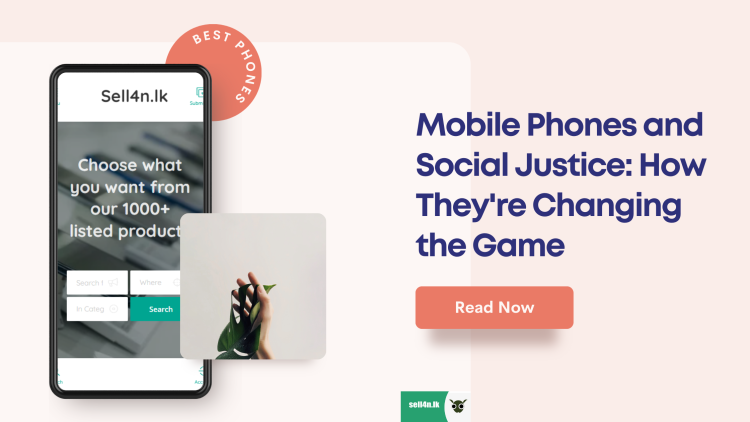Mobile phones have revolutionized the way we live our lives. They have changed the way we communicate with each other, how we access information, and even the way we conduct business. But more than that, mobile phones have also significantly impacted social justice.
With mobile phones, people can stay informed about the issues that matter to them. They can access news worldwide, connect with people who share their beliefs, and organize protests and rallies. In many ways, mobile phones have become a powerful tool for social justice.
One of the most significant ways that mobile phones have impacted social justice is by giving a voice to those who have been silenced. Governments have cracked down on free speech in countries like Sri Lanka, and citizens have been afraid to speak out against injustices. But with mobile phones, people can now share their stories and experiences with others.
For example, during the recent 2022 Sri Lankan protests, mobile phones played a critical role in organizing protests and spreading information. Mobile phones allowed people to communicate with each other, share information about what was happening, and coordinate their efforts with mobile phones.
Mobile phones have also been used to document injustices. With the rise of social media, people can now share videos and pictures of police brutality, government corruption, and other injustices. This documentation can hold those responsible accountable and bring about change.
In addition to giving a voice to the oppressed, mobile phones have also played a significant role in providing access to education and healthcare. People in many parts of the world need access to quality education or healthcare. But with mobile phones, people can now access educational resources and medical information.
For example, in rural Sri Lanka, mobile phones provide healthcare services. Patients can now receive medical advice and treatment remotely without traveling long distances to see a doctor. This has been a game-changer for people in remote areas with limited healthcare access.
Mobile phones have also been used to educate people in developing countries like Sri Lanka. With educational resources now available online, people can access quality education from anywhere in the world. This has been a significant step forward in the fight against poverty and inequality.
Despite the many benefits of mobile phones, there are concerns about their impact on social justice. For example, some worry that mobile phones may be used to spread misinformation and propaganda. Others worry that using mobile phones may lead to increased surveillance and loss of privacy.
To address these concerns, we must continue to use mobile phones as a tool for social justice while also being mindful of their potential downsides. We must work to ensure that mobile phones are used responsibly and that their use does not infringe on our rights and freedoms.
In conclusion, mobile phones have had a significant impact on social justice. They have given a voice to the oppressed, provided access to education and healthcare, and allowed people to organize and coordinate their efforts. While there are concerns about their impact, we must continue to use mobile phones as a tool for social justice and work to address any potential downsides.
